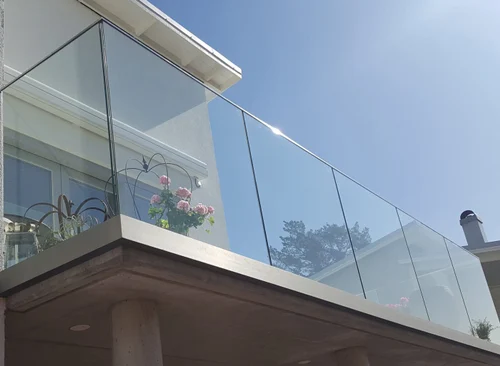Toughened Glass Manufacturers Near Peenya

Contact : +919743712272
Toughened glass, also known as tempered glass, is a type of safety glass manufactured with increased strength compared to ordinary glass. It is produced through controlled thermal or chemical treatments to make it harder and more resistant to breaking. When it does break, it shatters into small, blunt pieces rather than sharp, jagged shards, significantly reducing the risk of injury. This makes it ideal for applications where safety, strength, and durability are paramount, such as in buildings, automotive windows, and household items.
The Manufacturing Process
The manufacturing of toughened glass typically involves the following stages:
-
Cutting and Shaping: The process begins by cutting standard annealed glass to the required size and shape. It’s essential to finalize all cuts and details before the toughening process since post-treatment modifications can compromise the glass's structural integrity.
-
Heating: The glass is then heated in a tempering furnace to temperatures around 600-650°C (about 1110-1202°F), close to its softening point. This heating must be uniform to ensure consistent strength throughout the glass.
-
Rapid Cooling (Quenching): Immediately after heating, the glass undergoes a rapid cooling process known as quenching. High-pressure air jets blast the glass’s surface, cooling it quickly while the inner layers cool more slowly. This creates compression in the outer surfaces and tension in the inner layers, which gives toughened glass its increased strength and shatter-resistant qualities.
-
Quality Testing and Inspection: Each pane undergoes rigorous quality testing to ensure it meets industry standards. This includes checking for surface flaws, strength, and resistance to stress and impact.
Properties and Advantages of Toughened Glass
Toughened glass boasts a variety of advantages:
-
Enhanced Safety: Unlike regular glass, which breaks into sharp shards, toughened glass fragments into small, blunt pieces, reducing injury risks. This makes it ideal for applications where human safety is a priority.
-
Increased Strength: The tempering process enhances its strength, making it four to five times stronger than untreated glass. It withstands greater impact, higher stress, and sudden temperature changes without breaking.
-
Thermal Resistance: Toughened glass can withstand temperature variations of up to 250-300°C, making it suitable for environments with fluctuating temperatures.
-
Flexibility in Design: The material is versatile and can be used in various architectural applications, including doors, windows, facades, partitions, and skylights, as well as in the automotive industry.
Applications of Toughened Glass
Toughened glass is widely used across multiple industries:
-
Architecture and Construction: Its strength and safety make it suitable for large glass installations, such as building facades, glass doors, and balustrades, where the risk of impact or breakage exists.
-
Automobile Industry: Toughened glass is essential in vehicles for both windshields and side windows due to its impact resistance. In case of accidents, it reduces the risk of severe injury.
-
Interior Design: Its clarity and aesthetic appeal make it popular for shower enclosures, tabletops, and glass furniture, providing durability while enhancing the visual appeal.
-
Home Appliances: Toughened glass is commonly used in microwave doors, oven panels, and refrigerator shelves for its ability to withstand high temperatures and impact.
Sustainability and Environmental Impact
Toughened glass production, while energy-intensive, has been evolving towards more sustainable practices. Many manufacturers are adopting eco-friendly approaches, such as using renewable energy sources and recycling waste materials. Furthermore, toughened glass is fully recyclable, adding to its sustainability appeal.
Conclusion
The manufacturing of toughened glass represents a fusion of engineering and safety innovation, producing a material that is strong, versatile, and essential in many applications where regular glass would be unsuitable. With ongoing advancements, toughened glass production continues to meet the growing demand for safer, stronger, and more environmentally friendly glass solutions across industries.
.jpg)